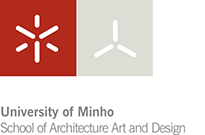Tuesday, 4/1/2025
EAAD - Garagem Avenida - Oficina de têxteis
On April 1, at 11 a.m., at Garagem Avenida's Textile Workshop, Hernâni
Reis Baptista will give an open lecture entitled “Matter in Potency”. During
the session, the artist will share some of his experiences with biomaterials.
Between his
studio and home, the artist has been exploring the possibilities of creating
materials from waste such as coffee, or the potential of bacteria and yeasts
such as scoby; gelatins, agar and other materials.
Hernâni
Reis Baptista is a visual artist with a multidisciplinary practice that has
crossed diverse media such as installation, sculpture and the expanded field of
the image. His work encompasses concerns about human and more-than-human
relationships, but also the artificial dimension of contemporary life,
referring to the use of the body as a vehicle for thinking about performativity
in the social context. He is interested in the exploration of surfaces, be they
the skin of the body or its surroundings, through replicas of industry, such as
synthetic skins, clothing, or the potential of new materials. Hernâni Reis
Baptista http://hernanireisbaptista.com
After the
open class, on April 1 in the afternoon, the Bioplastics Artist Residency
begins, accompanied by the artist Hernâni Reis Baptista. The second moment of
contact with the artist will take place on June 2, 2025, to share the results
obtained during the research period, to apply and experiment with the
resistance, impermeability and adherence of bioplastics with other technologies
similar to textile making. In view of the nature of the proposed material, it
will be necessary to monitor it for two months: execution time, drying and
applicability to textile techniques such as sewing, embroidery and dyeing.
This
residency will have a maximum of ten participants, and artists and young
artists are welcome to register, at no cost to the participants. To express
interest in taking part in the artistic residency, send an e-mail to monica.faria@eaad.uminho.pt.
This
activity has the support of Lab2PT and is carried out by the DiTTA project -
Discourses: Territory, Textiles and Art.

